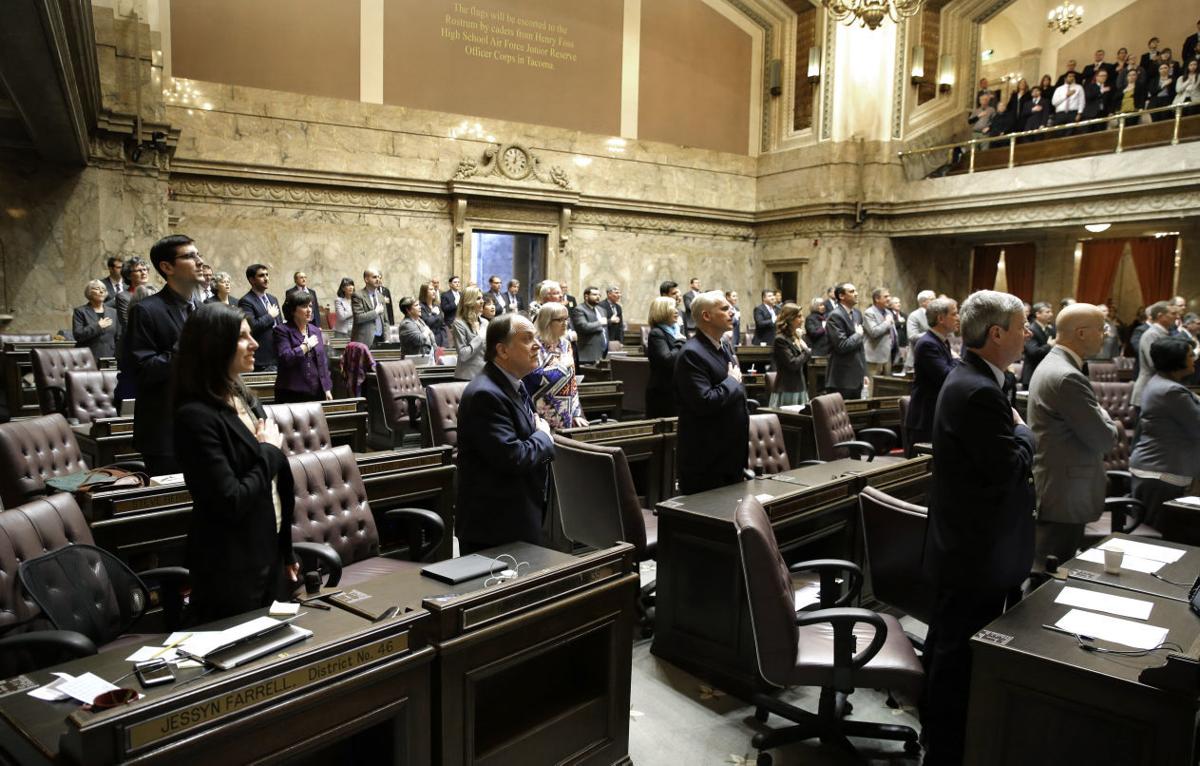Union membership among local public employees and home caregivers could be strengthened under a trio of bills in Olympia, but opponents argue the legislation would coerce workers into paying unwanted membership dues.
Two of the bills would affect the nearly 6,500 government workers in Cowlitz County, and a third bill would impact the county’s roughly 700 dues-paying individual home health care providers.
All of the bills have passed their respective policy committees on party-line votes, and two are scheduled for upcoming floor votes.
In his February newsletter, state Sen. John Braun, R-Centralia, blasted the home caregiver bill as “the most disingenuous and cynical bill in Olympia.”
The bill authorizes the state Department of Social and Health Services to transfer oversight and management of the state’s 37,000 home caregivers who are paid through Medicaid to a private entity.
As a proponent of the legislation, DSHS has maintained that the change would give the agency much-needed relief by freeing up case management time that’s otherwise consumed by administrative tasks such as payroll and enforcing training requirements.
“We feel like moving all of that to an entity that specializes in that function is a very good move for Washington consumers and individual providers,” said Bill Moss, assistant secretary for the state Aging and Long-Term Support Administration, in an interview Wednesday.
But Braun called the agency’s publicly-stated rationale “grossly misleading.” He said the bill is designed to appease the Service Employees International Union local 775, a union representing home caregivers that has historically given tens of millions of dollars to Democrats.
Prior to 2014, home caregivers were required to pay union dues to receive compensation through Medicaid. However, a U.S. Supreme Court decision made union dues for public employees — including home caregivers — voluntary.
As a result, thousands of home caregivers across Washington cancelled the state’s deduction of dues from their pay.
By shifting oversight to a private company, the law would pave the way for SEIU 775 to again require all caregivers serving Medicaid clients to pay union dues, said Maxford Nelsen, director of labor policy for the Olympia-based Freedom Foundation.
But that’s not entirely true, Moss wrote in a Jan. 26 letter addressed to the Senate Health and Long-Term Care Committee.
The state’s current collective bargaining agreement with SEIU 775, which includes an opt-out provision for individual providers, would transfer to any new private company, he said.
That would not, however, preclude the company and labor leaders “from negotiating over removing the opt-out provision in favor of a closed shop when bargaining future contracts,” he wrote.
Critics of the bill have also noted the bill would exempt a new individual provider administrator from the state’s public disclosure laws.
Another bill, passed out of the Senate Labor and Commerce Committee, would require public employers to grant union representatives access to new employees. Under the law, “reasonable access” would be required within 30 days of the employees’ start date and could not be limited to less than 30 minutes.
Proponents argue employees benefit from knowing about the benefits of union membership and learning about the laws governing their working conditions.
“It’s a piece of legislation that’s important both for employees and employers,” said Sen. Kevin Van De Wege, D-Sequim, at a Jan. 24 public hearing.
Van De Wege, who sponsored the legislation, is also a dues-paying firefighter.
Opponents, meanwhile, argue the bill is a solution to something that isn’t a problem.
“Experience indicates these captive-audience meetings tend to be highly coercive and deceptive,” Nelsen said.
He added that the Freedom Foundation believes the bill is unnecessary because unions already have nearly unrestricted access to public employees written into existing collective bargaining agreements.
A third bill would allow public employers to withhold full union dues from an employee’s pay without their written permission.
Supporters say the bill makes union membership opt-out as opposed to opt-in, which aligns with other collective bargaining statutes and gives unions greater financial certainty. Employees who don’t want to join a union can still opt out, according to a Senate bill report.
However, the bill’s foes argue deducting dues from employees’ pay without consent is immoral and unconstitutional.
Collectively, the bills could have a significant local impact. State and local government employees accounted for roughly 16 percent of all jobs countywide last year, according to the state Employment Services Agency.
